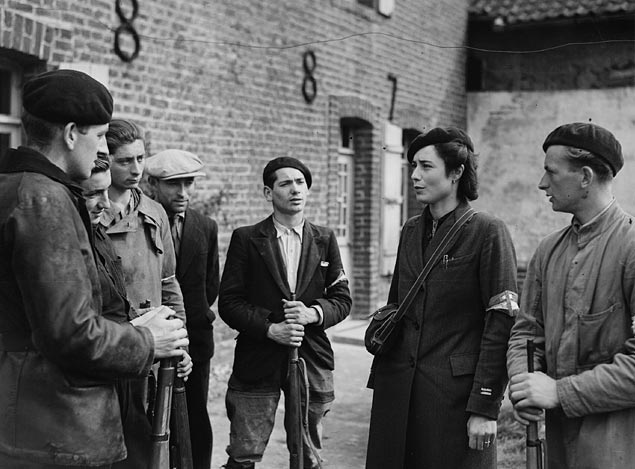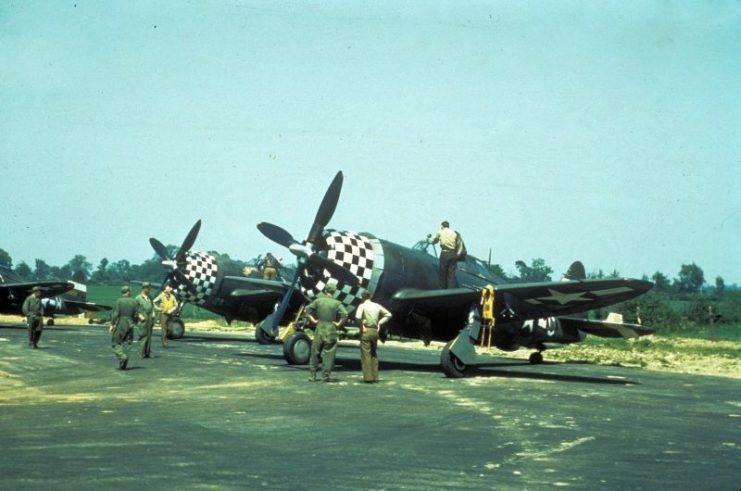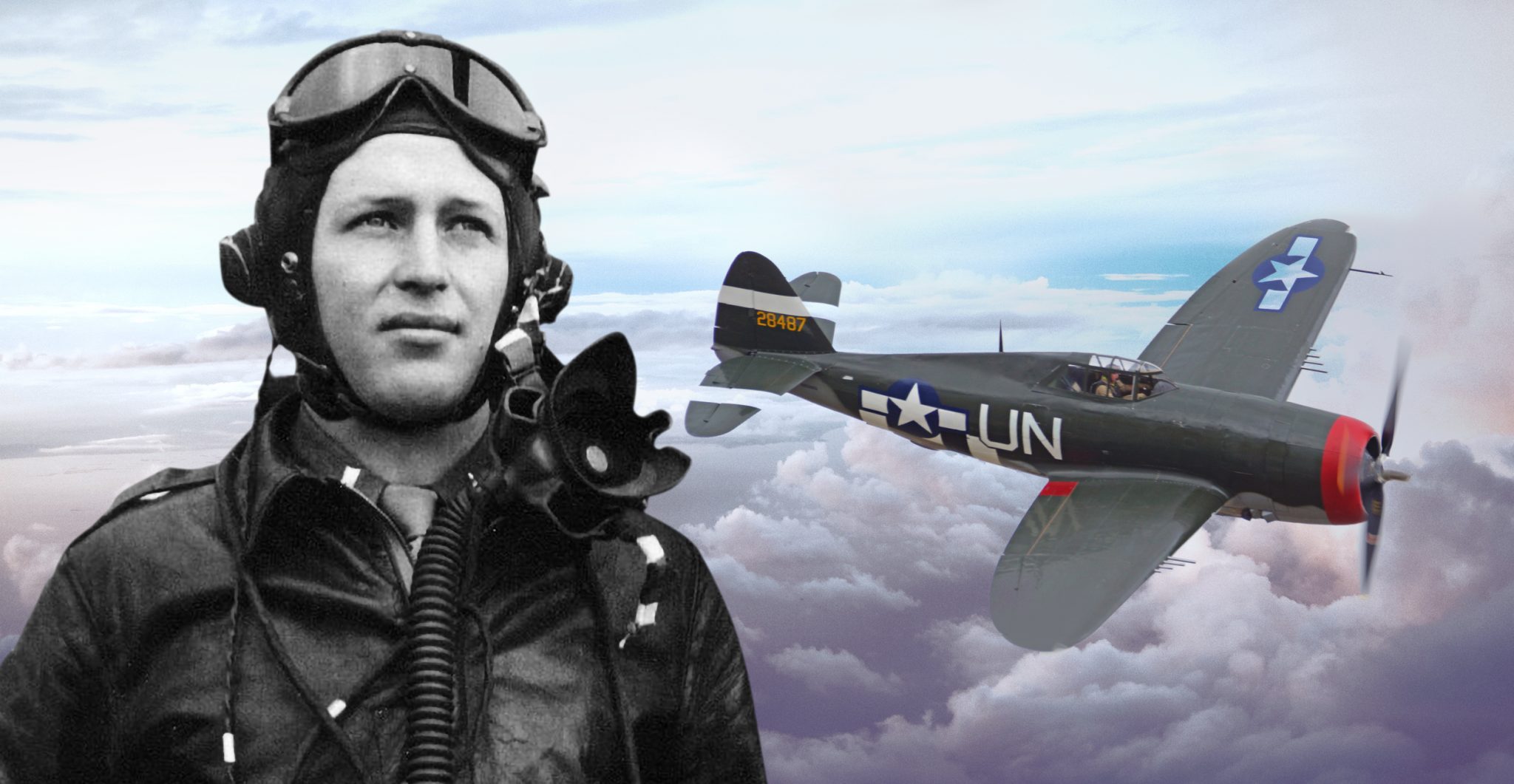Lonnie Moseley was 23 years old when he took off in his P-47 Thunderbolt on the morning of July 4, 1944. It was only his third mission in World War II, and the young man from Utah was still feeling the nerves as he lifted off into the darkness. What he could not have expected was that this mission would change his life forever and make him part of a story that would still draw the attention of historians more than seventy years later.
Moseley was to fly with several other pilots out of Duxford, England, to attack the Germans in occupied France. D-Day was just a month earlier, and the Allies were anxious to strengthen their position in Europe.
The enemy defenses fired on the team as they crossed the English Channel. They encountered more enemy fire close to their intended target, a German outpost near Rouen. Soon, an oil leak told him that he had been hit by the enemy. The group leader assigned another pilot to escort Moseley back to base, and the two turned to head back to England.
Shortly after turning around, the plane stalled and went into a free fall at 4,500 feet. He managed to restart it once, only to have it stall again and spray oil onto his windshield, blocking his view.
Moseley immediately knew he had to get out of the plane. He climbed out of the cockpit before remembering his oxygen mask and headset were still attached. After climbing back into the plane to remove them, he rolled onto the wing and then off into the air.
The parachute opened at the last moment, and he hit the ground hard. Moseley doesn’t even remember seeing the ground before hitting it. When he landed, he was deep behind enemy lines with sore knees and a bloody face. A man speaking French began motioning for Moseley to grab his parachute and follow him.

Moseley had a choice. He could trust this stranger who might turn him in to the German authorities or he could chance his luck in an unfamiliar country where he did not speak the language and could be shot as a spy if he were to be spotted by the wrong person. He decided to trust the Frenchman.
That decision was what changed his life for good.
After deciding to follow the Frenchman, Moseley stored his parachute in the farmer’s barn. Then he followed the stranger to his house. Knowing that the Germans must have witnessed the plane crash, Moseley became desperate and afraid that they would be looking for him and could come for him at any time.
It turns out that Moseley’s mysterious benefactor was Lucien Lestang, a member of the French Underground. Lestang’s family fixed up Moseley’s bloody face and provided him with old farm clothes as a disguise and gave him a bag of food.
Moseley hid in a barn and in the forest for three weeks while the resistance fighters prepared fake identification papers for him. They developed a persona for him as deaf-mute French farmhand whose hometown was in territory still controlled by the Allies so that the Germans could not verify.
After practicing ignoring noises in order to convincingly portray a deaf person, Moseley had a cover to explain why he could not speak or understand French.

He used that cover a number of times to walk past German outposts and search parties without raising suspicion.
Eventually, he heard that the British were camped only two miles away. He walked right through German soldiers in his disguise and then walked up to the British who were uncertain of whether they could trust him until a member of the French resistance verified his true identity.
The British got Moseley back to Duxford and, still wearing his French farm clothes, he walked right into the barracks and greeted a very surprised bunch of pilots.
The relationship between the Lestang family and the Moseley family continues to this day with members of each family visiting the other in the US or France. A relationship born in a fractured world continues to knit two families together and show us that trust, love and respect still matter.
